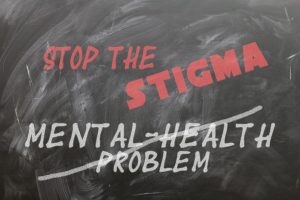How to Find the Best Agency for You

As the number of individuals with autism spectrum disorder (ASD) and other related disorders has increased, so has the demand for non-public agencies. There are such so many options available, it can be daunting to figure out which what agency to trust with your son or daughter.
The purpose of this section is to help alleviate some of those fears by providing some thoughts and criteria to guide your decision making when choosing a provider to meet your child’s needs.
B.I.G. Solutions realizes that each child is unique or different. What works for one child, may not work for yours. Our hope is that these guidelines will help you think through some issues that may be important as you explore options for your child and family.

- Start asking friends, family, advocates and lawyers for recommendations.
- Google searches and Yelp reviews can be helpful.
(B.I.G. Solutions is glad that you found our website!)
- There are many professionals claiming to have an expertise in Applied Behavior Analysis (ABA). It is up to you to determine if they are qualified to work with your child. In school programs, districts only require a BID supervisor to have a Master’s degree, but do not currently require that they be Board Certified Behavior Analysts (BCBA).
- Directors and Supervisors oversee programs, supervision and staff training. Just as you would not want a dentist to perform knee surgery, you would not want a supervisor with a Master’s in education, without board certification in behaviorism, to provide behavioral services. Generally, you would want a Board Certified Behavior Analyst (BCBA) to be the one providing behavioral services to your child.
- It is vital that the Directors and Supervisors/BID be Board Certified Behavior Analysts (BCBA). Having a BCBA means that the person working with you and your child has been through rigorous course work with intensive supervision, and is qualified to help children with special needs achieve new skills while decreasing problem behaviors.
- BCBA’s knows that their practice must be evidence based, so they know that what they are doing has the most benefit for your child.
BCBA Criteria:
- BCBA’s must have a master’s degree from a qualified accredited institution in behavior analysis, education, or psychology.
- BCBA’s must have completed graduate coursework that teaches the breadth and depth of behavior analysis.
- BCBA’s must have a minimum of 1,500 hours of supervised practical experience.
- BCBA’s must pass a rigorous national exam, administered by the Behavior Analyst Certification Board.
Criteria for maintaining a BCBA:
- BCBA’s must keep up their education and research by completing 32 hours of
 coursework during every 2-year recertification cycle to maintain their certification. Coursework must be approved by the Certification Board.
coursework during every 2-year recertification cycle to maintain their certification. Coursework must be approved by the Certification Board. - BCBA’s must adhere to the “Professional and Ethical Compliance Code for Behavior Analysts.”
B.I.G. Solutions’ Clinical Director is a BCBA, and its Clinical Supervisors are BCBA’s, or are currently candidates in the BCBA program and are being directly supervised by a BCBA Director. We strongly believe having a BCBA should be a minimum requirement for those overseeing an individual’s ABA/behavioral program.
If you are working, or about to work with, someone without a BCBA and who assures you they are fully qualified, perhaps ask them about the following things:
- What is their Master’s degree in? (If they do not possess a BCBA, it is important that they at least have a degree in behavior analysis, education, or psychology)
- What was their coursework?
- Do they have supervised experience?
- Have they taken a national exam in Behavior Analysis?
- Are they pursuing continuing education?
- Do they review the science and keep up with what is evolving in the field?
- Who oversees them?
- Will they be taking data, and constantly evaluating the program they have put into place?
Beyond ascertaining if the Supervisors are Board Certified, it is good to make sure you find out about all of their experience with children with special needs. You might ask:
- How long have you had your BCBA?
- How many years have you supervised cases involving home programs? School programs?
- What types of diagnoses do you have experience working with?
B.I.G. Solutions’ Clinical Director received her BCBA in January 2011 and has been working with children on the Autism Spectrum for over 10 years. She has also worked with individuals with mental health issues for nearly 20 years.

- Children and adults with Autism Spectrum Disorder (ASD) have a higher rate of medical and psychiatric disorders than that of the general population, and it is becoming more prevalent.
- Research suggests that over two-thirds of children with autism have been diagnosed with one or more disorders. The most common include anxiety, obsessive compulsive disorder (OCD) and ADHD. Research also shows that autism shares a genetic basis with major depressive disorder, pediatric bipolar disorder and schizophrenia.
- It would be helpful if the Clinical Director had experience and understanding of mental health concerns.
The Lancet. Identification of risk loci with shared effects on five major psychiatric disorders: a genome-wide analysis. Published Online; 28 February 2013 Volume 381, No. 9875, p1371, 20 April 2013.
B.I.G. Solutions’ Clinical Director, along with being a BCBA, also has a Master’s of Science degree in School Psychology, as well as a Pupil Personnel Services (PPS) Credential. The Director worked as a School Psychologist, as well as with clients admitted to the psychiatric units, in the behavioral mental health wing of a medical hospital. She has worked for 19 years with individuals who have had medical diagnosis and mental health disorders. Some of these disorders include the following but not limited to:
- Anorexia nervosa
- Anxiety Disorder
- Attention Deficit Hyperactivity Disorder (ADHD)
- Autism Spectrum Disorder
- Bipolar Disorder
- Blindness
- Bulimia nervosa
- Cerebral Palsy
- Conduct Disorder
- Depression
- Down Syndrome / Trisomy 21
- Dysgraphia
- Dyslexia
- Emotional Disturbance (ED)
- Epidermolysis bullosa (EB) “Butterfly Children”
- Epilepsy
- Fragile X Syndrome
- Gastrointenstinal Disorders
- Huntington Disease (Juvenile)
- Intermittent Explosive Disorder
- Obsessive Compulsive Disorder (OCD)
- Oppositional Defiant Disorder (ODD)
- Orthopedic Impairment
- Pica
- Prader Willi Syndrome
- Schizoid Personality Disorder
- Schizophrenia Disorder
- Substance abuse
- Tourette Syndrome
- Traumatic Brain Injury
- Turner Syndrome
- It is necessary to be sure that your team’s Behavior Therapists staff are well-trained. The Behaviorists are the staff that will most likely be working with your child the majority of the clinical time.
- Direct intervention staff predominately are not a BCBA, and often have no certification at all.
- If your child will be working with a Behavior Therapist, find out about how and how often they are supervised by asking the following questions:
- Is a BCBA providing supervision?
- Are they providing training on how to help your child more effectively?
- Can you provide examples of their training procedures as you are deciding about a provider or center?
- Can you provide examples of training procedures once your child is getting services, too?
- It is invaluable that the Behavior Therapists possess at least an RBT Credential. To possess and maintain being a Registered Technician the following criteria must occur:
Criteria of receiving an RBT:
- The RBT must obtain at least 40 hours of RBT training from the RBT Task List.
- Must complete a direct-observation competency assessment based on tasks found on the RBT Task List, and it must be administered and have an attestation of competency provided by a BCBA, or BCaBA.
- Pass the RBT exam
Criteria of maintaining an RBT:
- The RBT is publicly listed in the RBT Registry (info.bacb.com)
- The RBT must adhere to the “Professional and Ethical Compliance Code for Behavior Analysts.” (Revised March 21, 2016 – 24 pages)
- The RBT is working under the supervision of a BCBA or BCaBa

B.I.G. Solutions’ Behavior Therapists/ BIIs are all Registered Behavior Technicians (RBT), or are currently in the RBT training program. All Behavior Therapists are closely supervised by a BCBA.
There are many behavioral agencies who forbid their staff to interact at all with other students in the classroom. Their stance is to work solely with the student they were assigned to. But how can inclusion take place? How can they insure that their assigned child:
- Does not stand out differently?
- Isn’t singled out?
- Doesn’t become overly prompt dependent?
- Does not lack meaningful friendships?
- Is not excluded from game, sports and other activities?
B.I.G. Solutions’ philosophy is to use team collaboration to insure that inclusion and social interactions opportunities occur inside and outside of the classroom. The BIIs do this by appearing to be a classroom aide/teacher assistant to all the children, and not just their assigned student. Of course, the BIIs main focus would be on their student, but would help facilitate classroom activities such as partnered groups, small groups and other social activities to promote an inclusive setting for your child.

It is surprising, but unfortunately too common, that ongoing staff training or modeling does not take place in a lot of agencies.
- BID Supervisor are seen all too often coming out to the schools, sitting down with their clipboards, observing the child’s behaviors and observing their staff working with the child.
- However, BIIs and teachers have the strong propensity to be more successful implementing behavioral strategies when they are modeled consistently and appropriately.
B.I.G. Solutions believes in BID Supervisors working with the student and modeling behavioral strategies for the BIIs and teacher. We provide our staff with customized trainings throughout the year to provide ongoing training and keeping abreast with research, evidence-based strategies and relevant behavioral topics.

- ABA may be used for many hours across long periods of time, especially in the early stages of treatment. It takes a lot of work, by a lot of people (including you) to help your child reach his or her potential. So please be very careful of grandiose promises about unrealistic outcomes. Providers who promise instant cures should be questioned. None of us can say with certainty what a child will be able to do in the future.
- Most children will make progress when provided with effective instruction and support, but each child will progress at a different pace. There are many factors that may impact progress including your child’s health, behavioral challenges, quality of program and how challenging it is for them to carry over their skills to important settings (like your home, or in the community). All these things influence how quickly progress is made.
- Any provider or center that promises your child will be “just like typical kids” in a few years is making promises they can’t keep.
B.I.G. Solutions will do their very best to provide the best services possible by using ABA services and evidence-based strategies, while working diligently, clinically and professionally, to support and teach your child. Also, parents can get a good sense of progress through our data collection, as well as the data results and analysis in our routine progress reports with graphs.
- Some companies can outgrow themselves and lose sight of providing meaningful programs, and unfortunately can be run more like a business than an educational/behavioral agency.
- When investigating providers or centers, we strongly encourage you to see if they have a Board Certified Behavior Analyst on staff. If the provider or center serves a lot of clients, they should have more than one BCBA on staff.
- ABA as a treatment approach cannot be done properly if you have one BCBA who is responsible for making sure a lot of people are getting appropriate care. Some agencies will also have Board Certified Assistant Behavior Analysts (BCaBA) on staff. These are bachelor degree level professionals who have received some training, but who cannot supervise programs without frequent oversight from a BCBA. While a variety of factors impact caseload size, BACB Guidelines note that oversight of 6-12 clients is the average, with a higher range possible based on circumstances
- Look for an agency that will communicate with you on a timely basis. Some companies have no policy on a time frame of when they will get back to school staff or parents.

B.I.G. Solutions is a small, boutique agency that prides itself on excellent customer service, individual and detailed behavioral programs, and quality of service.
B.I.G. Solutions has the ability to specifically hire only direct service staff that are Registered Behavior Technicians (RBT), or are an RBT candidate, supervised and trained by a BCBA. We can also ensure that all Supervisors and Directors possess a BCBA or are enrolled in the BCBA program, and supervised and trained by a BCBA.
B.I.G. Solutions policy is that all of its employees, including the Clinical Director, other administrative staff, and Supervisors reciprocate communication within 48 hours or sooner. We appreciate families and school personnel relying on our services and expertise, and we believe customer service, communication and problem solving are all part of joint collaboration.
Furthermore, we will ALWAYS ask for parent input and involvement in a child’s program.
Summary:
B.I.G. Solutions hopes that these guidelines can assist in your decision-making process. Anyone, in any setting, who makes you feel your perspective is unimportant or interfering, is approaching your child’s needs with the wrong attitude.
This list is not exhaustive. Don’t be afraid to ask more questions. Take both positive and negative comments, and then make a decision based on what will benefit your entire family. Don’t be afraid to ask a lot of questions!
We wish you the best with your search, and if you have any questions, please do not hesitate to reach out to us!
